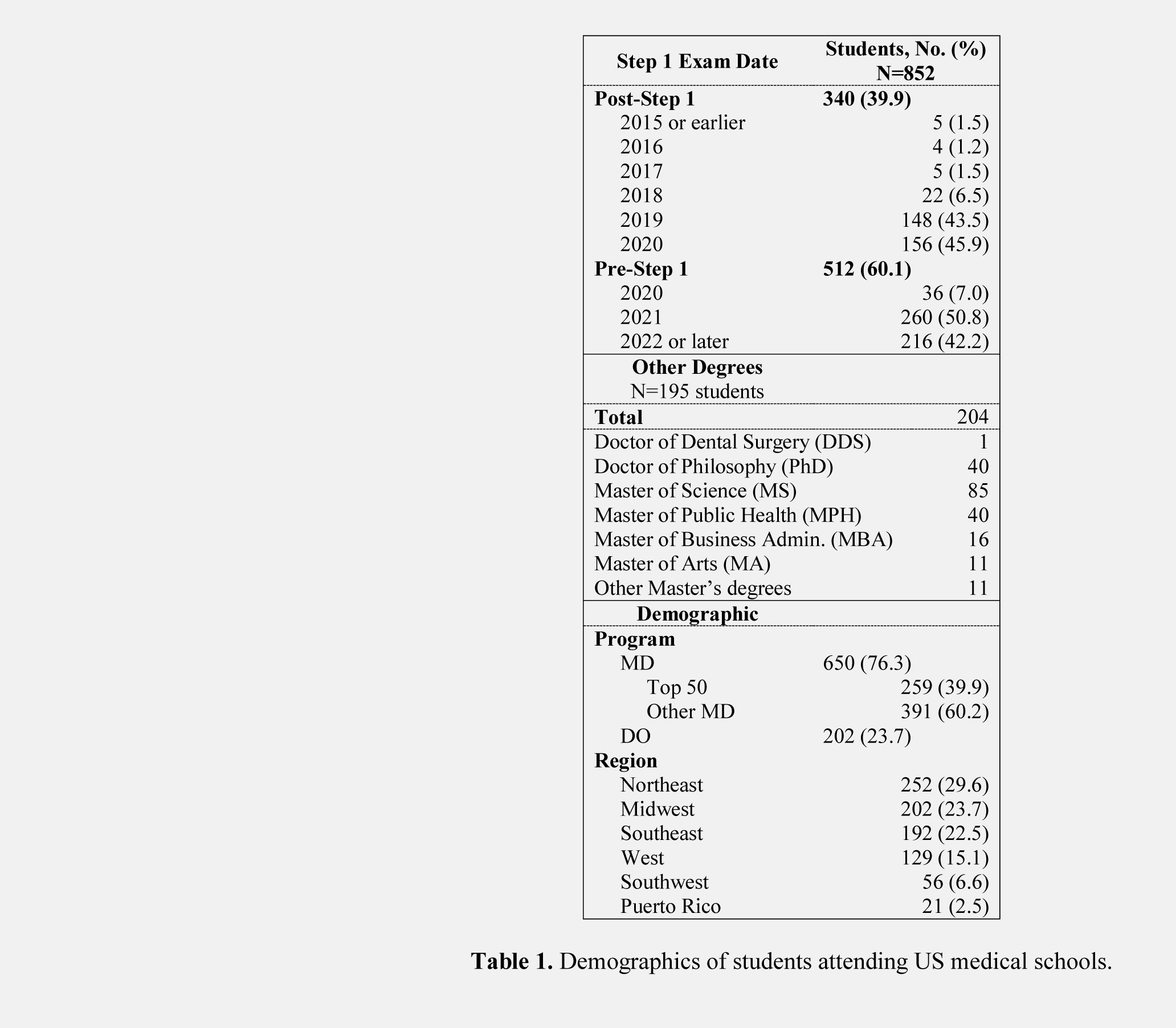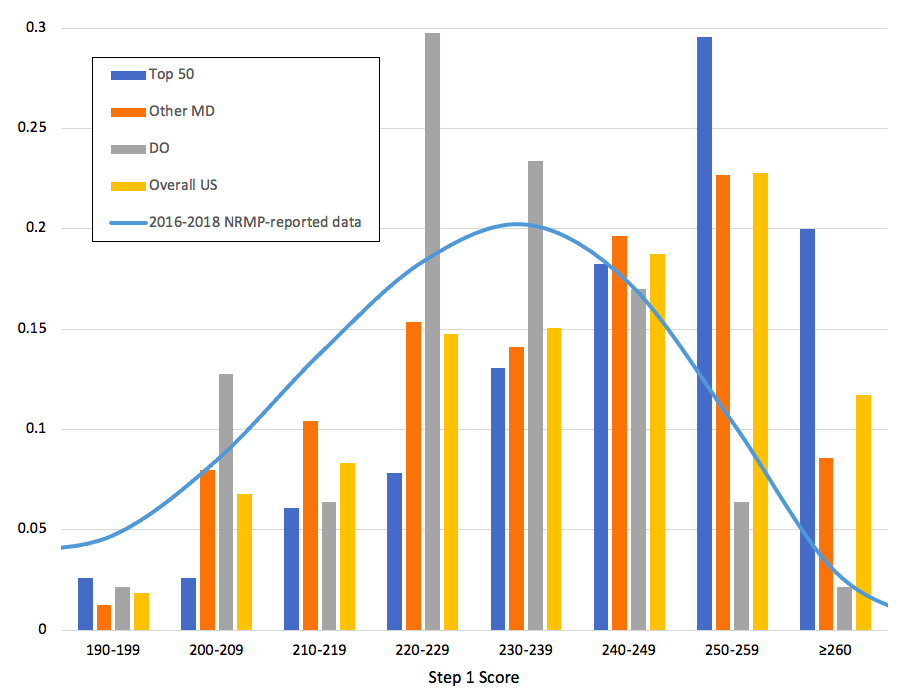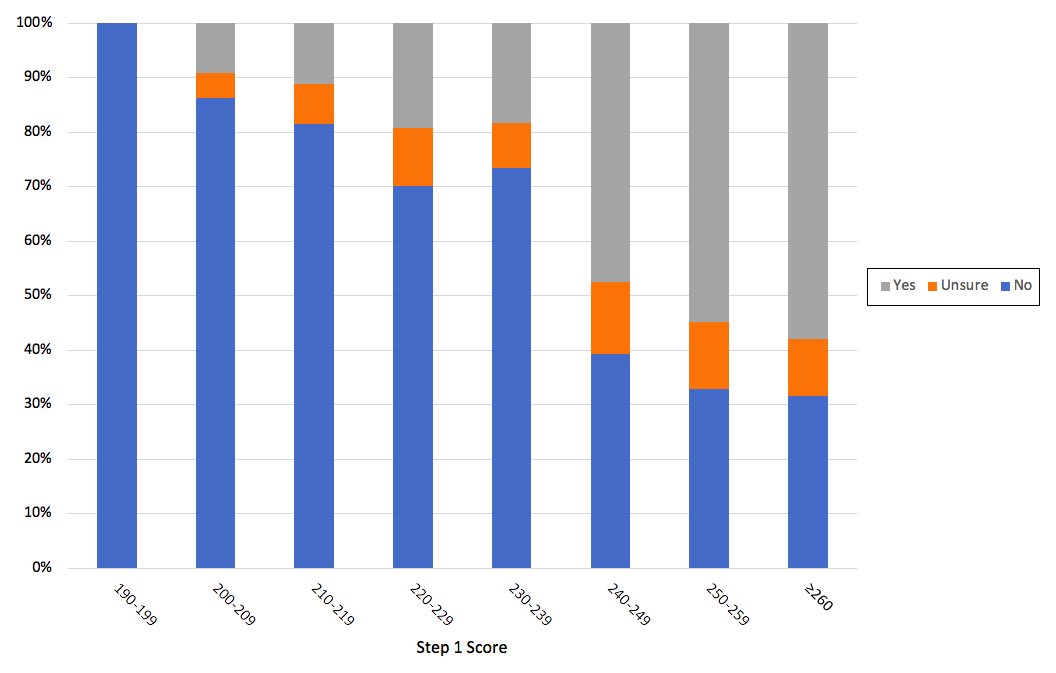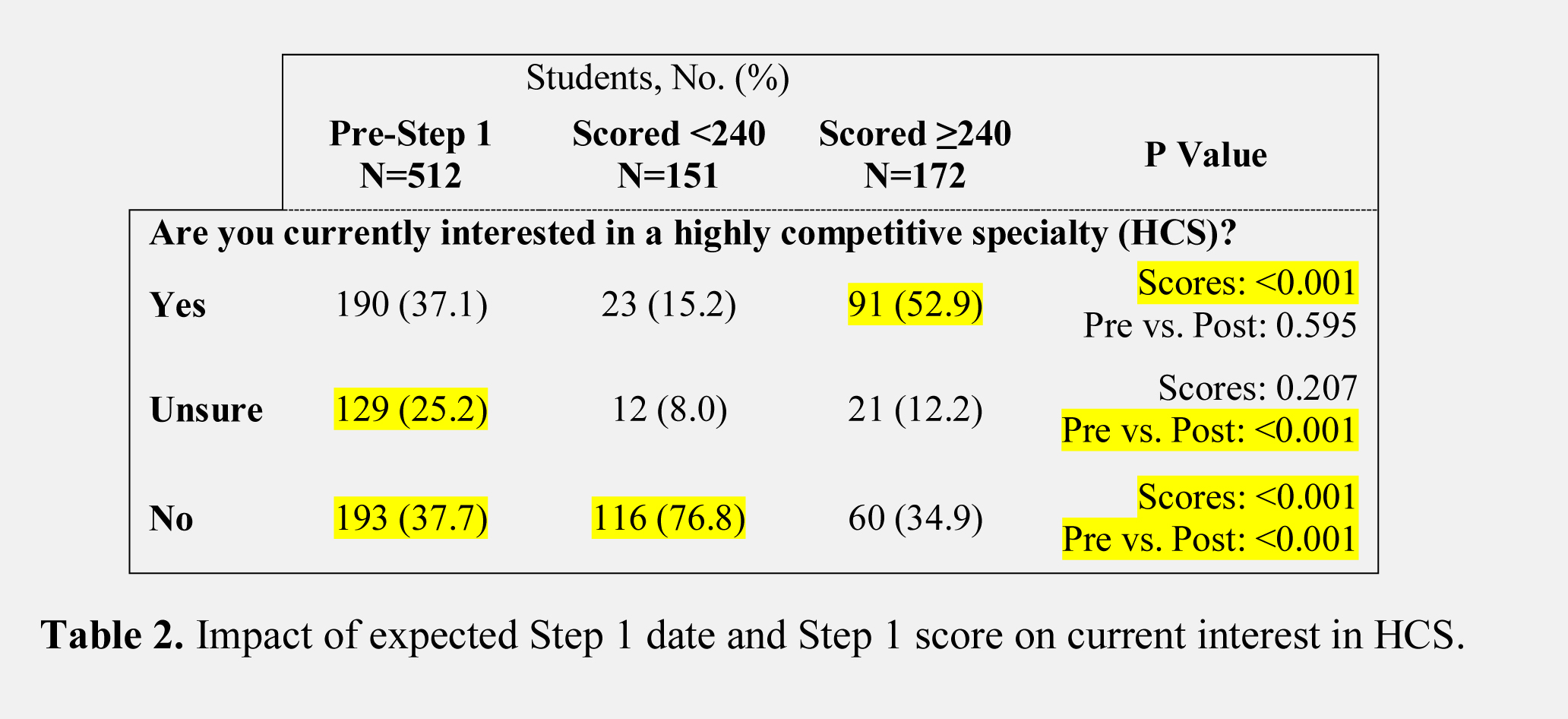US Medical Student Perspectives on the Impact of a Pass/Fail USMLE Step 1
Alisa Girard MBS1,2, Cecil Qiu MD1, Jonlin Chen BS1, Christopher D. Lopez MD1, Robin Yang DDS MD1
1Department of Plastic and Reconstructive Surgery, Johns Hopkins University School of Medicine, Baltimore, Maryland; 2Division of Plastic Surgery, Rutgers – Robert Wood Johnson Medical School, Piscataway, New Jersey
BACKGROUND: The purpose of this study is to (1) gather US medical student attitudes regarding pass/fail score reporting of the USMLE Step 1 exam and (2) investigate the impact of this new policy on specialty interest and redistribution of efforts to enhance individual competitiveness. Design: This is a cross-sectional analysis of US medical students surveyed from July to October 2020. Surveys were administered on social media and via medical school email list serv. Data were analyzed using Student t test and Chi-squared statistic, alpha=0.01. Setting: Data analysis was conducted at Johns Hopkins University in Baltimore, Maryland. Participants: This study included a sample of 852 students enrolled in US medical schools.
RESULTS: The plurality of students (39.0%) was in favor of the new policy; 30.9% of students were opposed. Students interested in highly competitive specialties (HCS) and students who scored 240 or higher on Step 1 (“high scorers”) were more likely to oppose the policy compared with HCS-disinterested students and students who scored below 240 (“sub-240 scorers”). If students were to hypothetically take Step 1 with pass/fail scoring, most students report that they would dedicate less time studying than they had for the numerical exam (72.7%) and more time preparing for Step 2 CK (70.5%) and conducting research in HCS (59.6%). Sub-240 scorers would be more likely to apply to a more competitive specialty (44.4%). Nearly half of HCS-interested post-Step 1 students would be more likely to dual apply (48.7%), the majority of which were also high scorers (89.5%).
CONCLUSIONS: Students expressed polarized opinions regarding pass/fail Step 1 score reporting. Students will redirect efforts away from Step 1 and toward Step 2 CK and research. Residency programs in both HCS and non-HCS can expect an increase in applicant pool size and diversity.





Back to 2021 Posters
